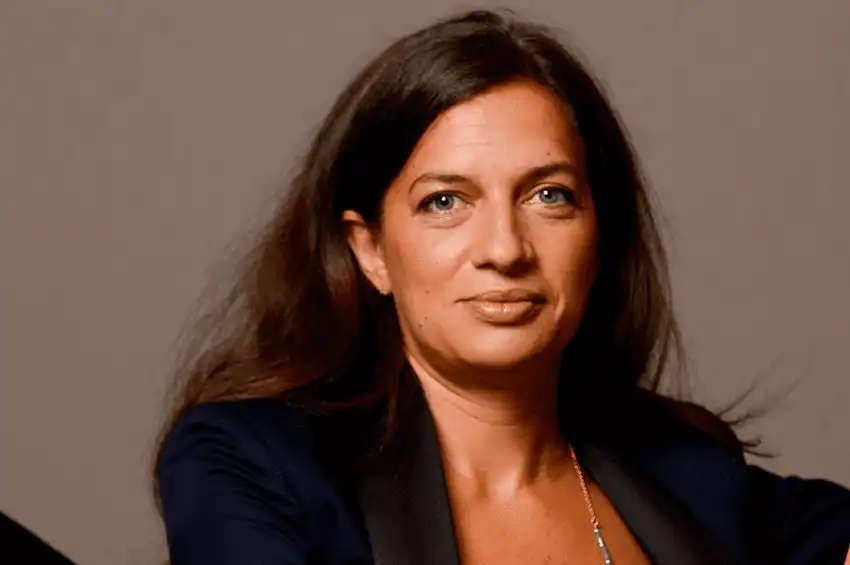Home>[INTERVIEW] Stéphanie Cardot, a Sciences Po entrepreneur and concierge
04.11.2019
[INTERVIEW] Stéphanie Cardot, a Sciences Po entrepreneur and concierge
Stéphanie Cardot is a graduate of Sciences Po’s economics and finance program. We spoke with her about what it took to start her own business in France and the United States. She provided her insights on entrepreneurship and how Sciences Po prepared her for the world of business.
Among Sciences Po’s alumni in the United States count many entrepreneurs who bridge the vast divide in business cultures on each side of the Atlantic. Stéphanie Cardot, founder and CEO of TO DO TODAY, is one of them.
Cardot followed the original Sciences Po track, starting with a preparatory year, then a three-year course in economics and finance. Then after graduating from business school she took up a position at Deloitte in New York in 1995, where she was part of the team driving the effort for what we now call Corporate Social Responsibility. Her work in that role caused her to realize that human capital’s important role would only grow in a modern workplace that would have to adapt to new generations joining older ones and higher rate of women joining the workforce.
That’s when she had the idea for her business, which would provide everyday services, well-being and engagements programs to help corporate clients attract and retain talent.
Toward the end of 2001 Cardot moved back to France to get things started, but she soon encountered some significant pushback from the business leaders to whom she pitched.
“Everyone I was talking to, CEO’s of CAC 40 companies, HR directors, they would all laugh at me and say ‘Oh these are gimmicks. Women and younger people will have to adapt. And we don’t have to change anything,’” she says.
Where others might have found discouragement, though, Cardot saw an opportunity.
“I figured out that if no one was really paying attention it meant that there was a huge potential and that the market would eventually catch up with those guys.”
The fundamental concept of TO DO TODAY sounds simple enough, especially in today’s hyper-connected world. People in the workplace often lack the time that they need to look after themselves and their families. Cardot noticed this almost two decades ago, before we started talking about “wellness.” Her company is a “physical” concierge service that provides people with the services they need to live a life freed from constraints, in top shape and a with community engagement. From daily chores, to dry cleaning, health and wellness services in the workplace, community service opportunities and collaborative events, TO DO TODAY offers a range of services.
This started with on-site concierge services. This was well before the digital revolution made such amenities available with the tap of a touchscreen. And at first, French customers were slow to adopt. “Until 2006, 2007, I was starving,” Cardot says.
Real estate saved her before corporate clients rallied. In 2003 the Blackstone Group called her. They wanted Cardot to adapt the concept to a 1,000,000 sq. ft. building they had acquired in Paris. For a while, the focus was on real estate, then other businesses saw value in the concept and signed on. TO DO TODAY signed contracts with Carrefour, Airbus, Microsoft and other international companies that were shifting their workforce and workplace strategies.
All the while, Americans were telling Cardot that they had seen no equivalent service, and she was ready to return to the United States. After all, she gave her company a name in English as a nod to its international ambitions. And in 2016, she moved back to the United States and signed a first contract in Boston.
She says that her time at Sciences Po prepared her well for a career as an entrepreneur.
“To me, Sciences Po is the most amazing experience in my entire life. It has shaped who I am, how I think, how I work, how I operate.”
Sciences Po helped her develop the self-confidence and inquisitiveness that she says every entrepreneur needs. Cardot notes that business leaders need the ability to convince their audiences and to be skeptical of every argument placed in front of them.
But they also must be resilient.
“People tend to idealize entrepreneurship. It’s really a shitty life. You’re always struggling, you’re always fighting,” she says.
And that’s what leads her to say that students and young graduates can’t be afraid to take risks and to use the skills that they education has provided them. “There’s always a Plan B when you’ve graduated from Sciences Po.”

